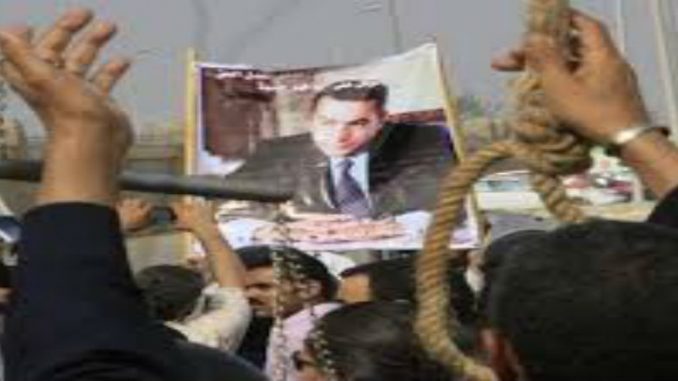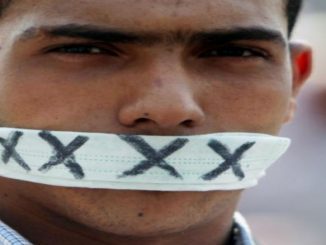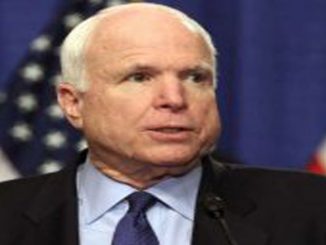
Egypt’s top appeals court found Hosni Mubarak innocent on the involvement in the killing of protesters on January 25 Revolution that toppled his 30-year rule in 2011.
Mubarak’s retrial captivated viewers when he appeared in a courtroom cage on charges that ranges from corruption to complicity in the murder of peaceful protesters.
In 2012, Mubarak was sentenced to life in prison in for conspiring to murder 239 demonstrators during the revolution.
However, an appeals court ordered a retrial that culminated in 2014 in the case against Mubarak and his senior officials being dropped.
Accordingly, the appeal by the public prosecution led to the final retrial by the Court of Cassation.
On Thursday trial, Judge Ahmed Abdel Qawi announced after hearing that took most of the day that,”The court has found the defendant innocent.”
Moreover, the court rejected demands by lawyers of the victims to reopen civil suits.
That left no remaining option for appeal or retrial, according to a judicial source.
The families of those killed, who had attended the trial early on, were not present on the trial, however, lawyers condemned the verdict as “politically motivated”.
Osman al-Hefnawy, a lawyer for the families, said “This ruling is not fair and not just. The judiciary is politicized.”
On the other hand, the courtroom was filled with Mubarak’s supporters who cheered “long live justice” as the verdict was read out and unfurled posters of their former leader.
Mubarak’s rule was a period of autocracy, capitalism and social injustice.
After January Revolution that ended his autocratic regime, Egyptians dreamed of freedom, democracy and social justice. In this context, Egyptians elected for the first time, in a freely democratic elections,President Mohamed Morsi.
But the Egyptians hopes quickly faded away when Abdel Fattah al-Sisi, the Minister of Defense at that time, launched a a bloody military coup in 2013 that ousted Morsi who only lasted a year in office.
Since then, the Egyptian authorities launched a massive crackdown on Morsi, his Muslim Brotherhood, political opposition mainly Islamists , lawyers, rights groups and journalists.
In a single day, hundreds of Morsi supporters were killed in the dispersal of Rabaa al-Adaweya Square and al-Nahda sit-ins while thousands were jailed in unhumanitarian conditions in Egypt’s prisons.
Later, the military coup started to widen its repression circle to include secular and liberal activists who were at the forefront of January Revolution but opposed Muslim Brotherhood rule.
On the other hand, Mubarak-era figures were gradually cleared of charges and many laws putting restrictions on political freedoms has raised fears among activists that the old regime is back strongly.
Furthermore, many observers expect that the Egyptian authorities would move within the coming period the case known as “State Security 250 Case” that includes most of the revolutionary icons who are charged with: toppling the regime, suspending the constitution, killing protesters, burning property and public facilities, and attacking the President (Hosni Mubarak).”
In fact, “State Security 250 Case” dates back to March 2011 when the state security department buildings were attacked in six different governorates. The case includes charges against several revolutionaries, politicians, and media figures (86 media figures), prominent activists, and NGOs.
The charges include receiving foreign funds after the revolution as well as espionage with foreign countries and intelligence agencies.



